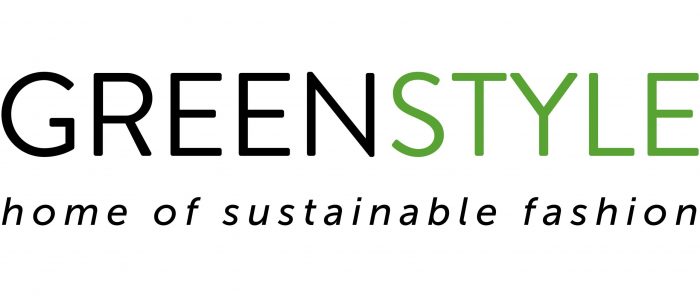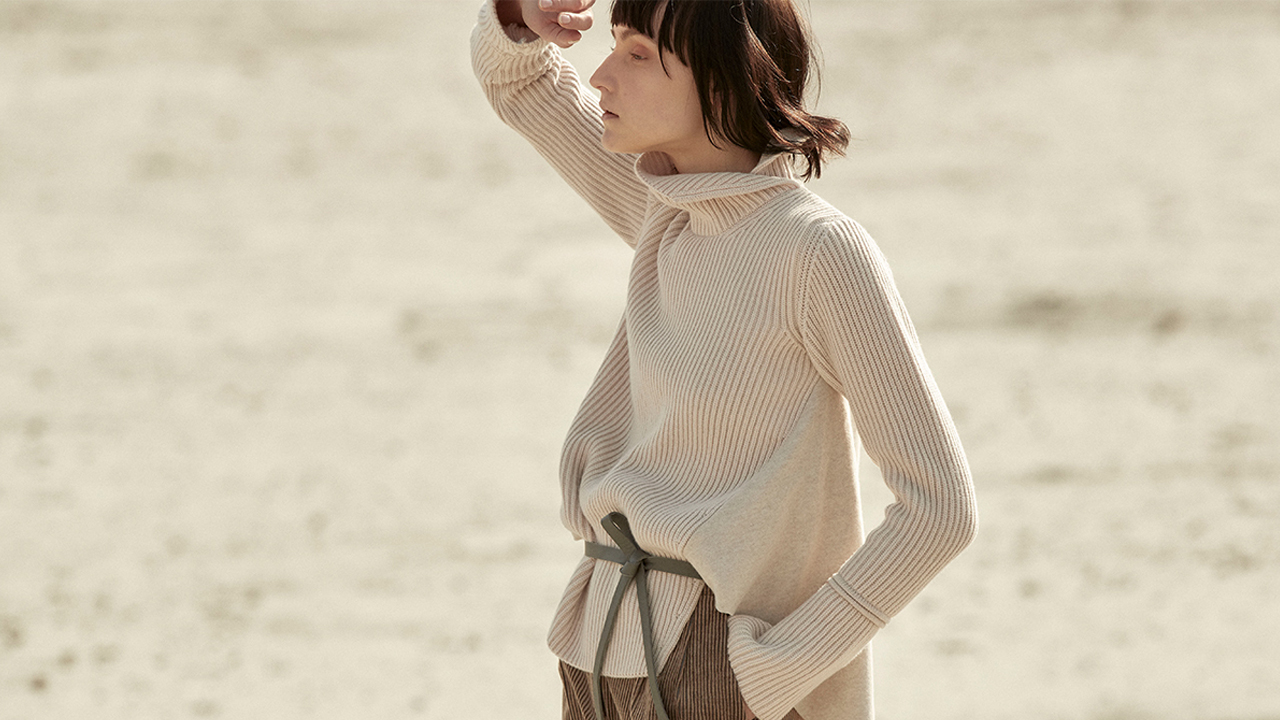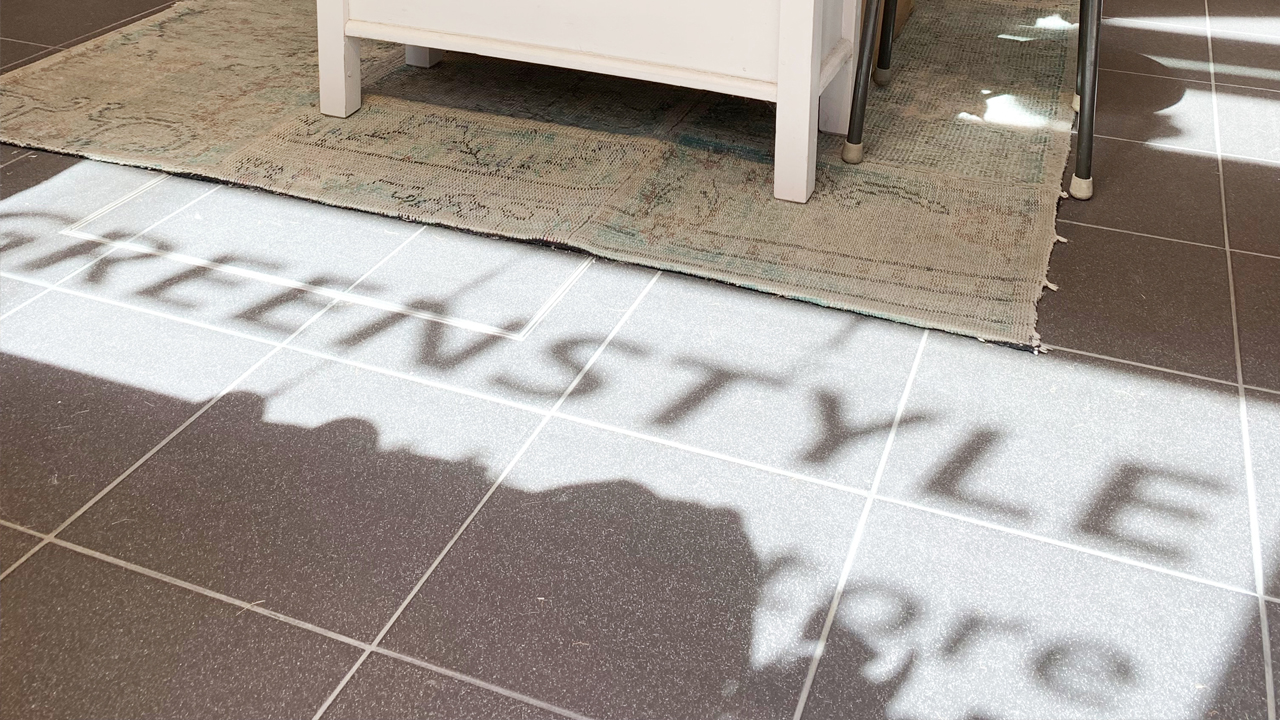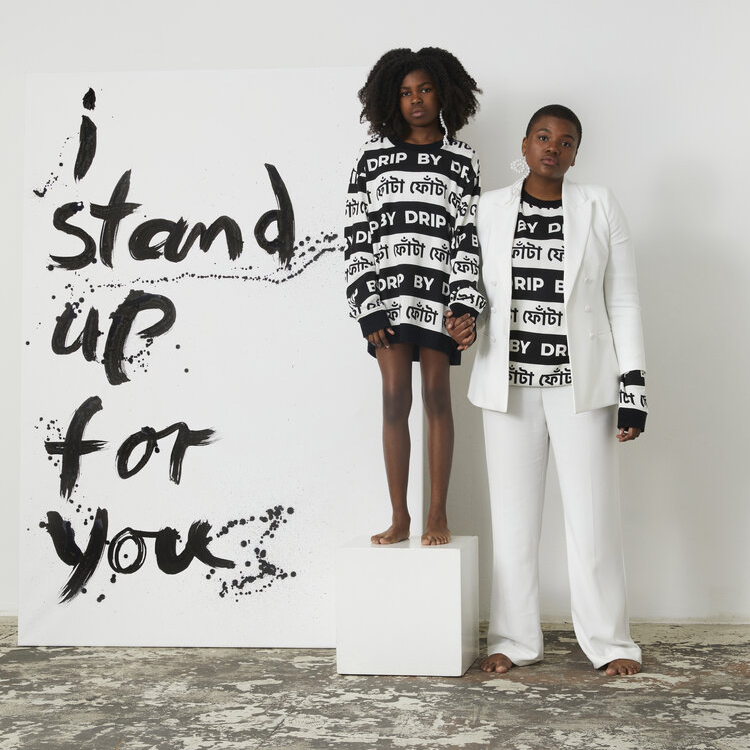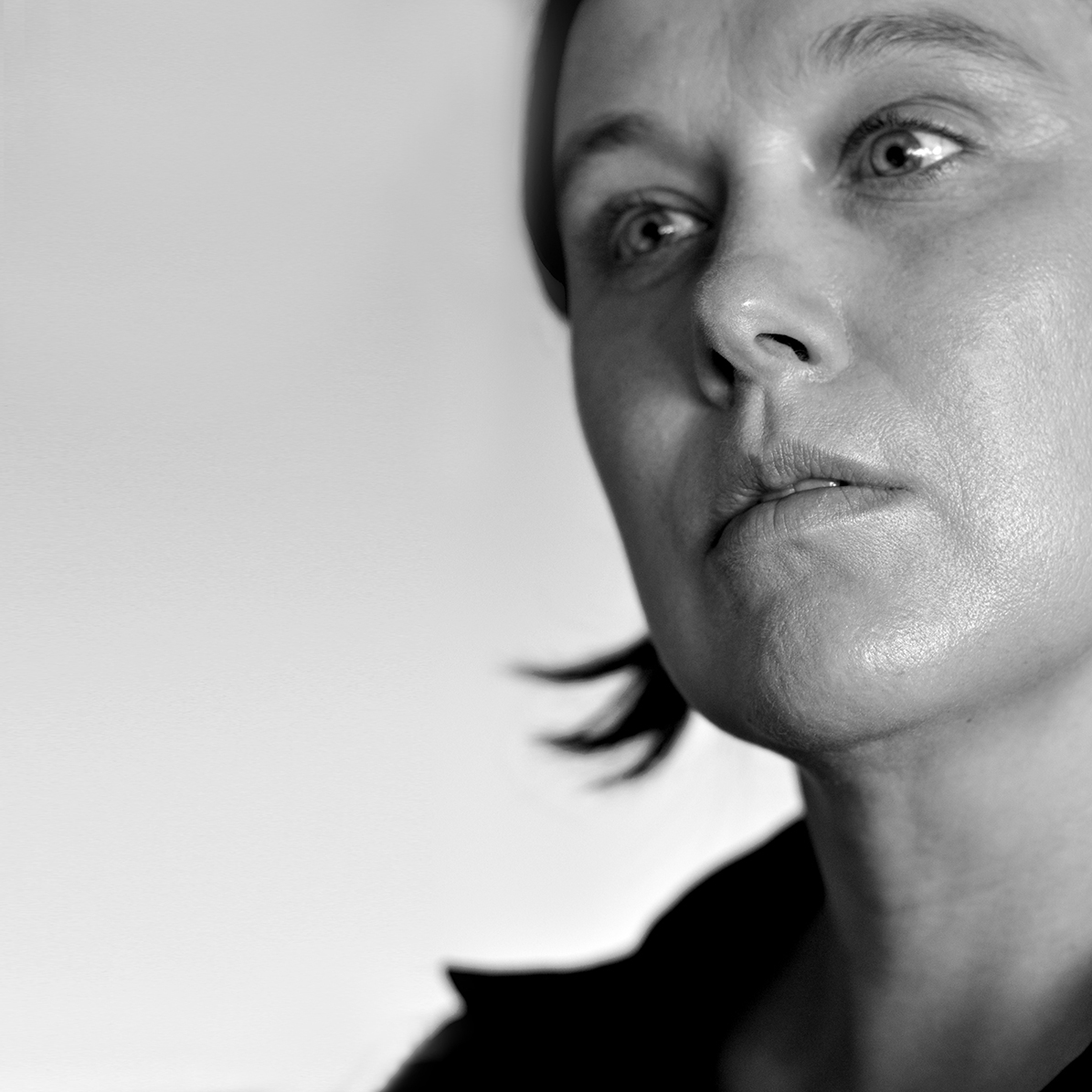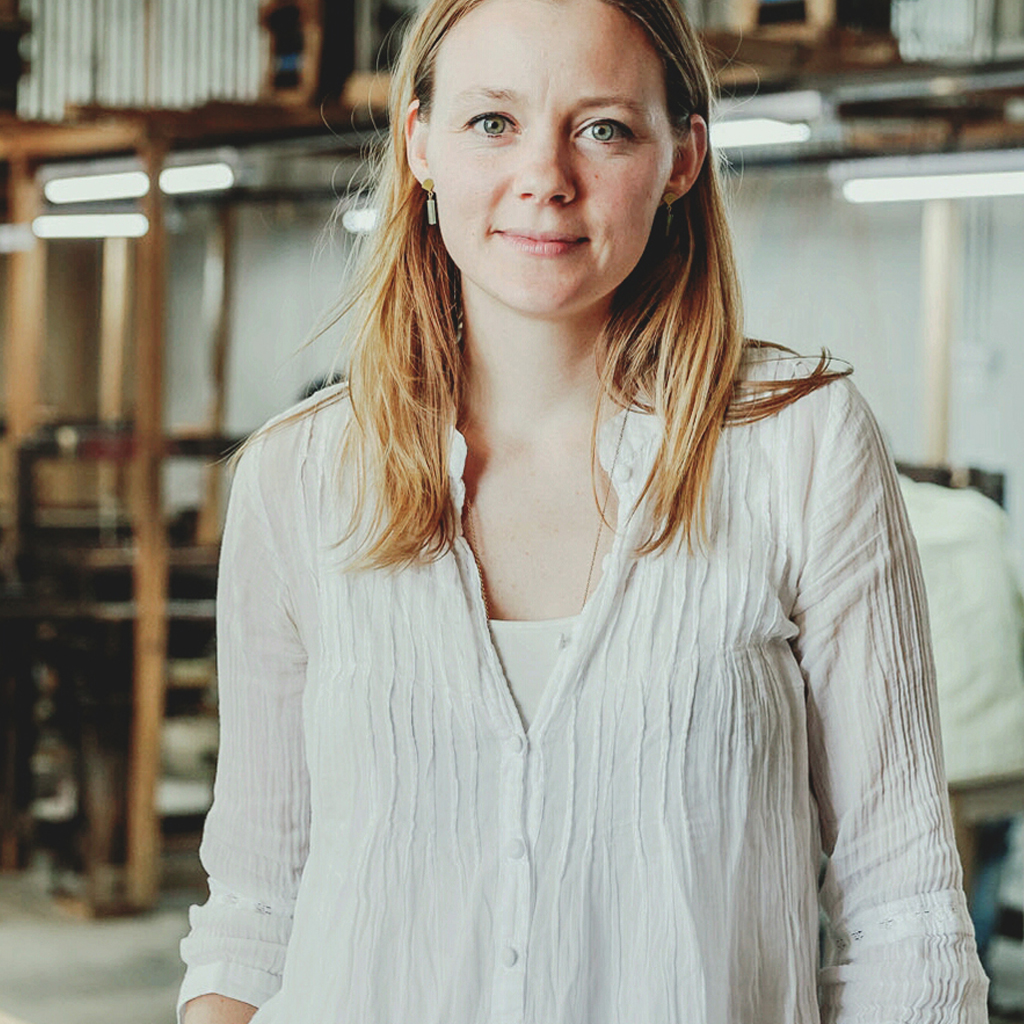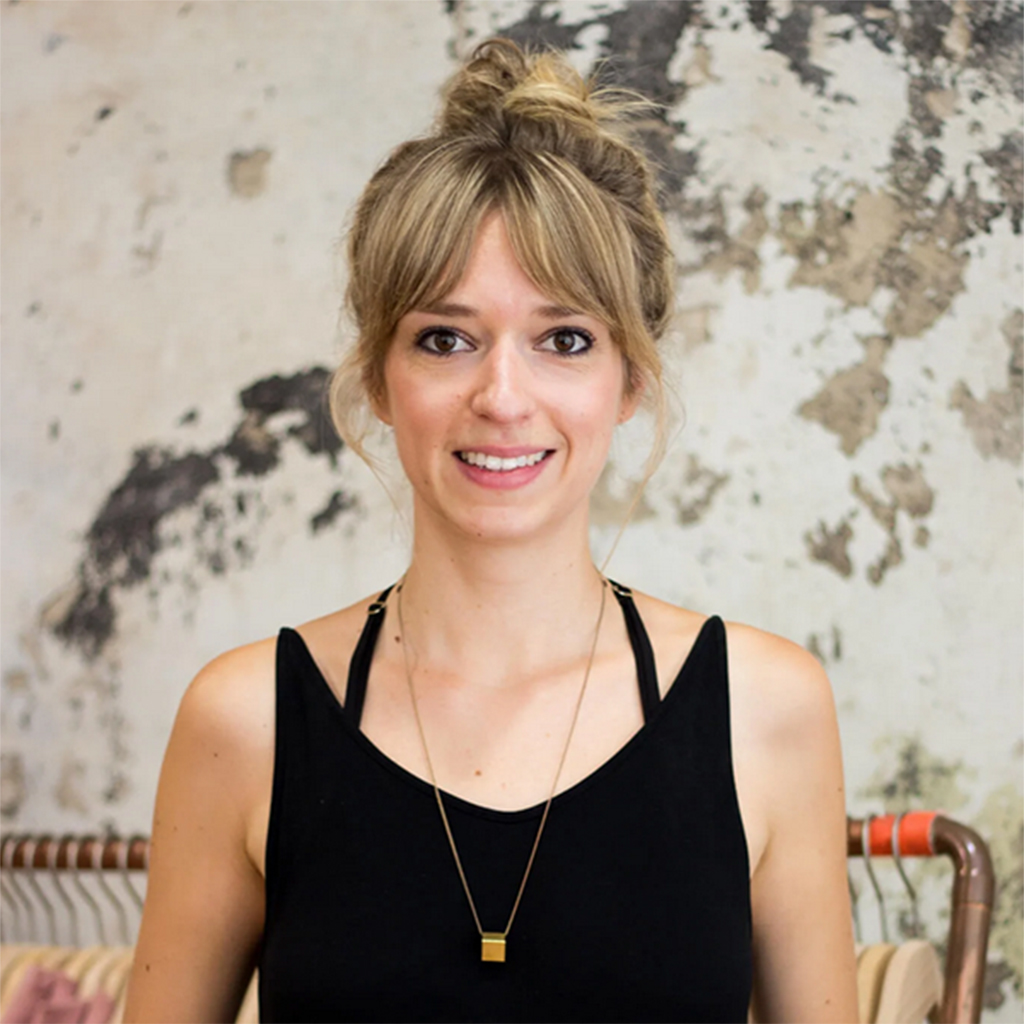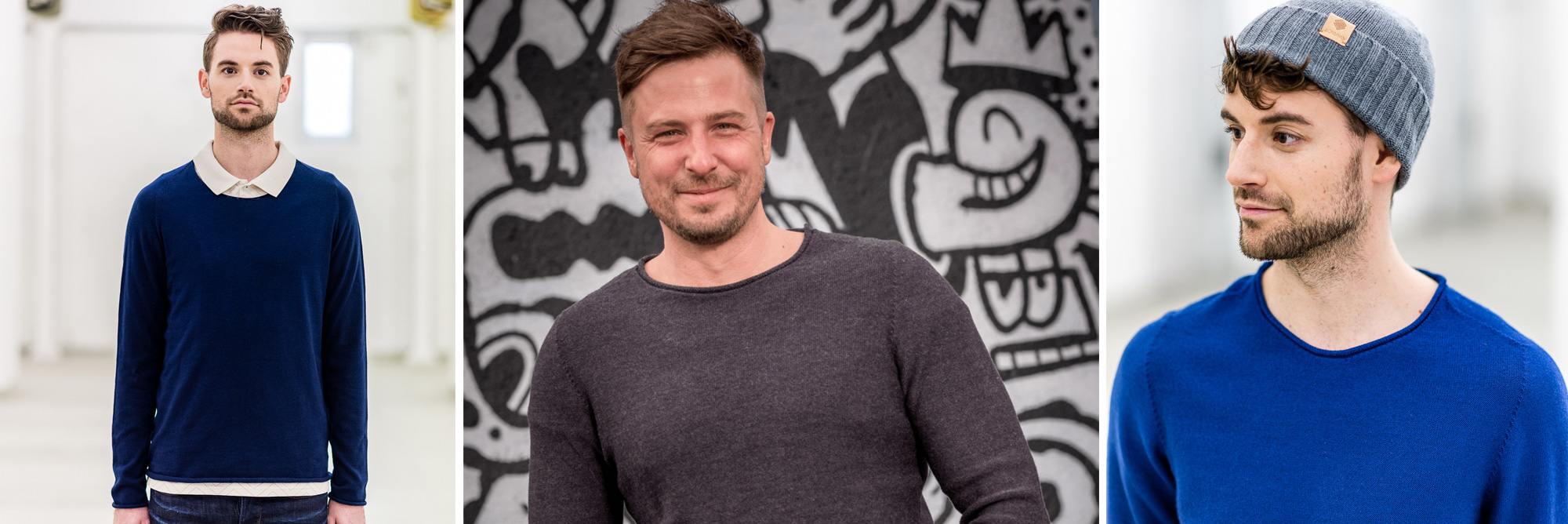Natyoural
#The Brands of GREENSTYLE the store
We opnened the GREENSTYLE pop up store @ Rathaus München. With thirteen (!) Fantastic GREENSTYLE brands that represent as many facets of sustainable fashion as possible. Come and visit us
Continue readingDrip by Drip: Drinking water for Bangladesh
Almost 80 billion cubic meters of water were used in the fashion industry five years ago. Sounds a lot? It’s a lot. Because of this amount of water, all people in Germany could be supplied with 1.44 liters of water every day.
Continue readingClaudia Santiago Areal
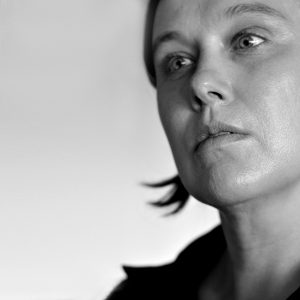
Claudia Santiago Areal already had her craft and artistic talent from her parents in the cradle: the father carpenter and goldsmith, the mother artist. The Bavarian from Laufen at the School for Wood and Design in Garmisch-Partenkirchen, Germany, deepened her experience with all conceivable materials and techniques that she was able to discover in her parents’ house before studying interior architecture at the Munich Academy of Fine Arts. Today, the interior designer and product designer designs, develops and teaches (master school for carpenter Munich since 2010) and with her label LIVALIKE she has already made several award-winning paper bags.
LIVALIKE is a small, fine Munich label with which Claudia has dedicated herself to slow fashion.
The material from which their special, architectural pieces are made is called “Tex on Vogue”, is a very durable paper fabric, washable, produced in Germany and FSC and OEKO-TEX® certified. You can cut, fold and fold it, the bags can even be washed in the washing machine! Their aim is to produce timeless, high quality and sustainable bags. The Livalike Tote 306 was recently awarded the European Product Design Award 2019.
Dominik Füreder

As product manager of neubau eyewear Dominik Füreder develops the new eyewear collections together with the neubau eyewear team, the designers and the technology. The Austrian brand focuses on premium design, urban lifestyle and sustainability. Everything made in Austria. And that makes them successful. The equally clean and functional glasses have already found many friends in the fair fashion community. But also beyond.
Dominik’s favorite shape of glasses? Its minimal vein is unmistakably expressed in the new building collections.
“I love minimalism,” says the passionate cyclist, “and you can see that in our products. Part of me can be found in all styles from neubau eyewear. ”
What is he constantly working on? To be able to offer the perfect collection. That is why he always keeps an eye out for outstanding new technologies and materials such as naturalPX and natural3D, which new construction uses for its innovative glasses frames.
Good to know: His sustainable commitment also continues in private: Because in his free time he turns his balcony into an outdoor paradise and expresses his passion for nature as an outdoor activist.
In the meantime, the selection in the fair fashion sector is huge and the styles varied. In the accessories area it looks a little thinner. Therefore we are very happy that there are brands like neubau eyewear.
Marina Chahboune
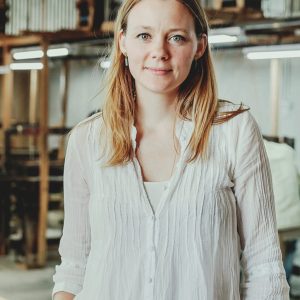
You can easily call her a changemaker from the beginning. Marina Chahboune has been dealing with fashion and the production conditions of the textile industry for over ten years. The sustainability manager lives in Indonesia and accompanies local companies in Pakistan and Bangladesh with her team. As a trained tailor, a degree in fashion design with a focus on sustainability, a master’s degree in sustainable textile production and various work experiences. She knows the German industry very well and knows which screws to turn to make the clothing and textile business a little bit better.
With her consulting agency “Closed Loop Fashion”, Marina primarily advises factories with a large production volume. The focus of her work is on chemical management, safety at work, textile waste management, process optimization to save resources and also on fiber and material development. Marina speaks of “applied sustainability” on her website. The main aim is to provide the players in the textile industry with practical tools and holistic solutions for applied sustainability and circularity – from capacity building to strategy planning, from concept to implementation.
Be sure to take a look at the Closed Loop Fashion Knowledge Hub, Marina’s new blog platform, and get inspiration and know-how there.
Christina Wille
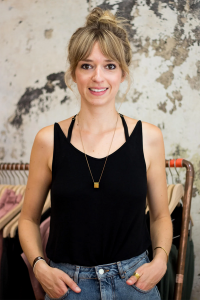
Christina Wille already had the topic of sustainable textile production on her agenda during her studies. Then followed positions in the detox campaign by Greenpeace, a designer, a sales agency and finally from 2012 as managing director in the Berlin Dear Goods Store. Christina has been running her first own store in Berlin since 2014. Today the LOVECO empire comprises three shops (Friedrichshain, Schöneberg, Kreuzberg) and an online shop.
Christina pursues a clear concept in her stores: everything there is to buy at LOVECO is eco, fair and vegan. Since this is not always easy to check, the game changer relies on trustworthy seals and pays close attention to which materials were used and how. In an interview, she describes herself as open, organized and personable. We can only confirm that. We would also like to add her great enthusiasm for what she does: wanting to change something with her work and making the fashion industry a little bit better. Together with Lanius, LangerChen and Avocadostore, Christina founded the #fairfashionsolidarity movement as part of the effects of the corona crisis.
Christina’s LOVECO concept is based on the three pillars eco, fair, vegan.
On the Loveco Fashion Blog Christina gives an insight into her work and gives a look behind the scenes of her company, talks to exciting people from the world of fair fashion and is dedicated to different topics of sustainability.
Bettina Musiolek
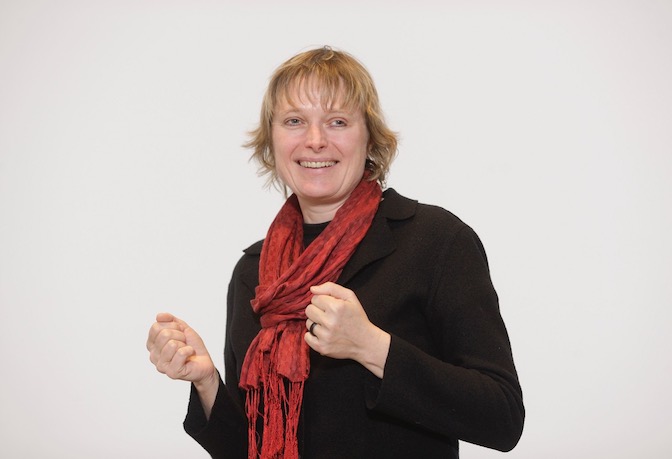
Bettina Musiolek was one of the founders of the German platform for the Clean Clothes Campaign in 1995. As she says, the economist works at the interfaces between business, society and politics. She is the coordinator for Europe South / East for the Clean Clothes Campaign. The human rights initiative campaigns for the rights of workers in the supply chains of the international fashion industry. “It needs rules of the game that apply to everyone,” she says, and calls for a supply chain law, “so that human rights violations are really punished.” Bettina Musiolek also works as a consultant for “Business and Human Rights” for the Development Policy Network Saxony (ENS), an association of Groups, initiatives and associations in the federal state of Saxony that are committed to sustainable development and global justice.
“There will no longer be a fashion brand saying that they have no responsibility in the supply chain.”
Bettina Musiolek has been visiting production companies for 25 years and says: “Thanks to the Clean Clothes Campaign, the fashion industry is the most advanced branch: The structure of actors and the awareness of the fashion brands about their human rights responsibilities and the importance of stakeholder discussions are relatively well developed . No more fashion brands will stand up and say they have no responsibility in the supply chain.”
NEONYT ON AIR: a fully sustainable week
Unfortunately, we had to do without the physical summer edition of NEONYT 2020 in the Tempelhof in Berlin. Instead, the makers from Frankfurt will go “on air” from July 13th to 17th together with fashion and digital experts, making their content accessible to all interested parties.
Continue readingThokk Thokk
Everything started with the Munich eco label Thokk Thokk with T-shirts. The characteristic, graphic prints were (and are) printed by hand in Munich. Today, the collection is a stylish mix of classic basics and striking statement pieces that are produced – certified according to the highest bio-fair standards such as GOTS and Fairtrade.
Continue readingACHAHHA
ACHAHHA (pronounced A’tschah) comes from Sanskrit and means “good”. If you take a brief look at the philosophy of the Fellbacher Knitwear brand by Sebastian Schulz-Dobrick, it is pretty clear why the name is so suitable.
Organic animal farming, 100 percent certified merino wool, organic and recycled cotton, zero waste production. Due to the innovative 3D knitting process, the seamless knitting process delivers maximum quality without disturbing seams and is washable without the use of chemicals. Apart from that, the timeless, clean knitted classics with V-, round or turtlenecks are not only produced in one piece in the Rhineland using the latest 3D technology on state-of-the-art high-tech machines. The highly complex production machines are also manufactured in Germany.

ACHAHHA – Washable merino wool without chemicals
The knitting duration of the “Made in Germany” sweater is one hour. Thereafter, a little fine tuning is done. The label (which comes from Wuppertal, located in a wonderful region, is produced on machines that are 80 years and older in a traditional ribbon weaving mill) is sewn in, then the quality inspection takes place. The sweaters are then washed, dried and ironed. This step ensures that the goods are delivered in their final condition, which does not change during subsequent washing. Sounds good, am I right?
“Of course, only electricity from renewable energy sources is used during production and the shipment is climate-neutral”.
Are you asking yourself if Sebastian Schulz-Dobrick was already working in fashion before he founded his start-up? Not quite. He was the managing director of a company that manufactures insect screens, among other things. His interest and motivation to run a fashion company that operates transparently and sustainably is purely private. Actually, the Leverkusen-born designer wanted to use nettle yarn from a German company for his collection, but he then decided on merino wool.
“Only the merino wool is not regional. It is sourced from South America.”
What makes merino wool so sustainable? It keeps you warm in winter, maintains a pleasant temperature in summer and is highly resistant to dirt and odors. This makes it very easy to care for. You could also compost the ACHAHHA garments. The meaning of ACHAHHA should be pretty clear by now.
More about achahha. Click here
